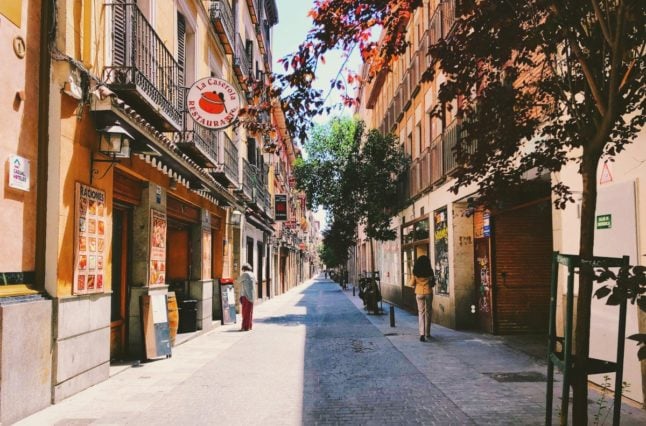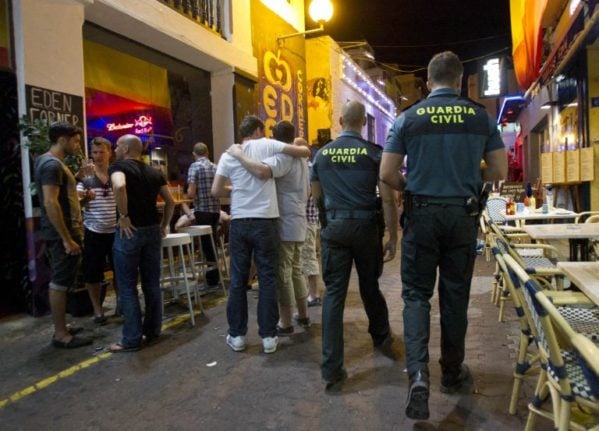Madrid authorities also announced they will not authorise the transformation of commercial properties into tourist accommodation in the centre of the city and will increase the fines for tourist properties that do not comply with regulations.
Madrid, like many other cities in Spain, has been suffering from a rise in illegal tourist accommodation with thousands swiftly popping up across the capital.
One of the main obstacles for regulators is how difficult it is to find out exactly how many there are. Madrid authorities have counted 14,699 tourist establishments in the city, 92 percent of which are for tourist accommodation. But, only 941 of these have a municipal licence, meaning the rest are illegal.
READ ALSO: Why Madrid is struggling with its explosion of illegal holiday lets
According to the Inside Airbnb platform though, there are 25,543 tourist apartments listed in the city.
In order to combat the issue, Madrid City Hall will increase the amount of fines for owning and running one of these illegal holiday lets.
They will set the first penalty at €30,000, the second at €60,000 and the third level at €100,000. Those committing serious infringements or who keep renting out their flats without licences, even after warnings, may have to pay up to €190,000.
Current fines are only €1,000 for the first infringement. If they still don’t comply, a second fine of €2,000 is issued, and if the situation persists, a third penalty of €3,000 will be given.
The number of inspectors to check on tourist rentals will also be increased by 15 percent, up to 75.
In order to help holidaymakers know whether or not an apartment they’re interested in is legal or not, the city will also publish a list of flats with licences and their location on an official website.
“People who want to stay will know if they are in a legal or illegal accommodation and the consequences that may arise because of this” explained Mayor José Luis Martínez-Almeida.
In early 2019, former mayor Manuela Carmena approved a special Accommodation Plan to regulate tourist accommodation in the city. The new rule established among other requirements that tourist apartments should have an independent entrance from the rest of the neighbours.
According to her calculations, this would affect 95 percent of holiday lets in the city, essentially rendering them illegal. The rule was appealed by the sector, but the courts ended up agreeing with the City Council in 2021.
These rules were found to be insufficient as many holiday lets have continued to operate in the capital without a licence, and in late 2023 Martínez-Almeida promised to create new ones.
Initial approval of the new plan is scheduled for September 2024 and final approval is expected to be in the first half of 2025.
READ ALSO: Who really owns all the Airbnb-style lets in Spain?
The problem is not only the number of tourist rentals, but the issues they cause for residents. The Inspection and Disciplinary Service received 51 percent more complaints in 2023 than in 2022 that involved homes and apartments for tourist use: 686 compared to 454. 82 percent of which came from citizens.
Of the total inspections carried out (4,093), it was verified that 478 homes were dedicated to tourist use and 243 were for residential use.
Not everyone is in agreement with the new plan. The Regional Federation of Neighbours of Madrid (FRAMV) believes Almeida’s plan is not enough and that the regulations should apply to the entire municipality not just the central areas.
The spokesperson for Más Madrid in the City Council, Rita Maestre, has also spoken out against the plan. Maestre believes that the vast majority of tourist apartments already operate freely without a licence, and that the new legislation will do little to change that.
For Exceltur, Spain’s main tourism and hotelier association, there is not enough inspection capacity anywhere in Spain to be able to control that legislation is complied with.
Spain’s Housing Minister Isabel Rodríguez recently called on the 17 regional governments to implement restrictions on short-term holiday lets in areas where rents for locals have spiked, as the national government continues to look for ways to address the country’s housing crisis.
“Wherever there is a greater concentration of apartments for tourists, there is also pressure in the property market ,” Rodríguez said.
Even Madrid’s populist regional president Isabel Díaz Ayuso, whose policies are usually in favour of “freedom” and liberalisation, has said that they “are studying how to regulate holiday accommodation so that higher prices do not expel neighbours”.
Average monthly rent prices in Madrid currently stand at €20.7 per square metre, after registering an increase of 18.2 percent over the last twelve months and 4.8 percent in a quarter-on-quarter rate.
“Vacation rentals are having an impact on the market, especially in the historic centres of cities,” Madrid’s general director of Housing and Rehabilitation of the Community María José Piccio-Marchetti Prado, told Business Insider Spain.
“In Madrid you see it around Puerta del Sol, Plaza Mayor… where there are many tourist homes”.
READ ALSO: Which cities in Spain have new restrictions on tourist rentals?



 Please whitelist us to continue reading.
Please whitelist us to continue reading.
Member comments